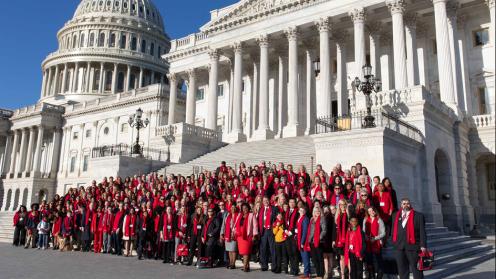We're Taking a Stand for Health Care Access
136 million Americans are living with diabetes or prediabetes. This is a number we can't let continue to grow, especially when some communities still need access to health care and resources for living healthy. Diabetes is the most expensive chronic condition in the United States, and millions of Americans struggle to afford it, including health care, insulin and other medications, and devices to manage their diabetes and associated complications. Here at the American Diabetes Association (ADA), we believe access to health care is a human right. That's why we're fighting to ensure everyone has access to the best possible diabetes care.













